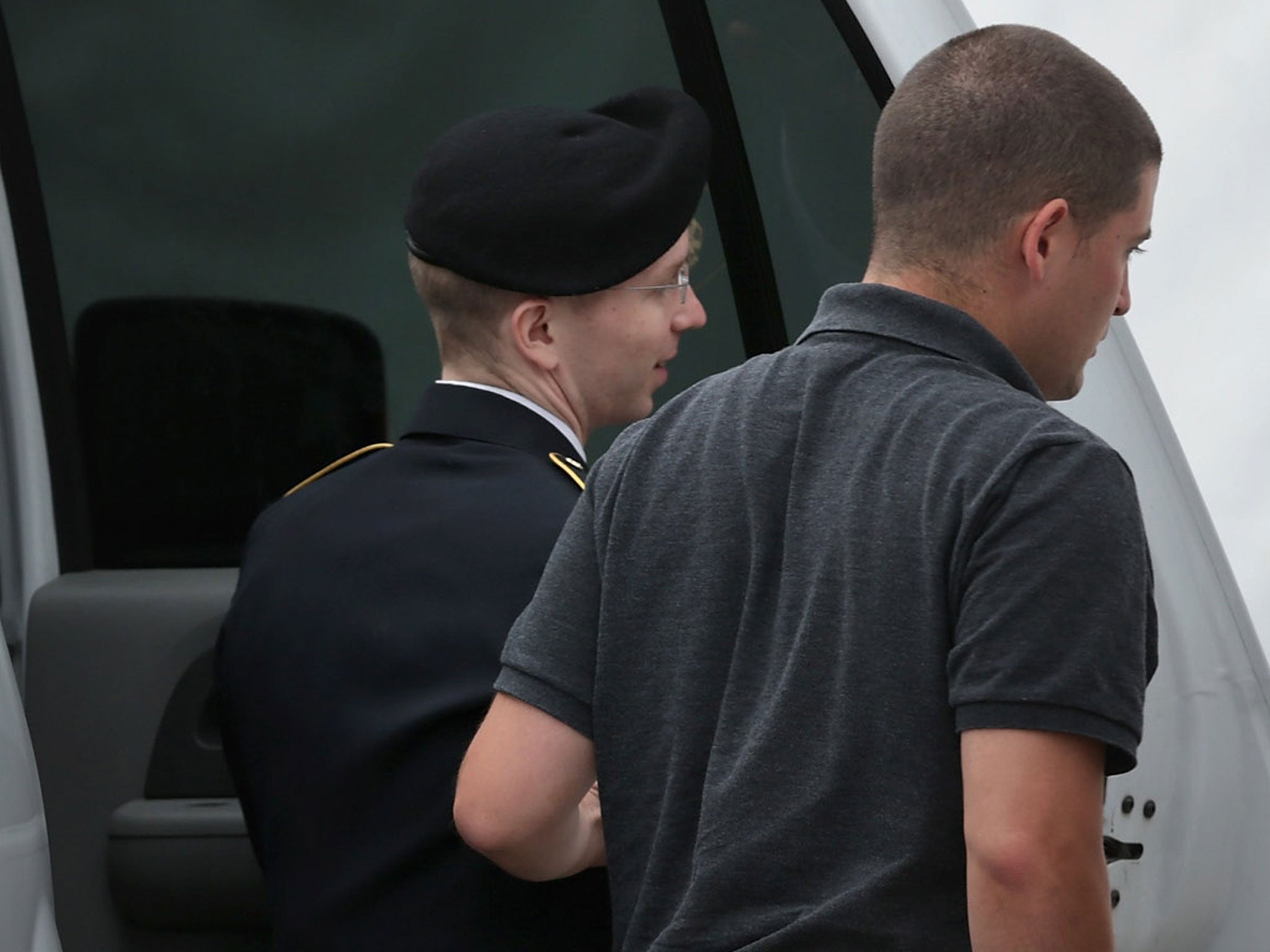Bradley Manning trial: Wikileaks whistleblower is a 'gleeful, grinning' traitor, says prosecutor
The judge in the case is due to issue verdicts within days

Your support helps us to tell the story
From reproductive rights to climate change to Big Tech, The Independent is on the ground when the story is developing. Whether it's investigating the financials of Elon Musk's pro-Trump PAC or producing our latest documentary, 'The A Word', which shines a light on the American women fighting for reproductive rights, we know how important it is to parse out the facts from the messaging.
At such a critical moment in US history, we need reporters on the ground. Your donation allows us to keep sending journalists to speak to both sides of the story.
The Independent is trusted by Americans across the entire political spectrum. And unlike many other quality news outlets, we choose not to lock Americans out of our reporting and analysis with paywalls. We believe quality journalism should be available to everyone, paid for by those who can afford it.
Your support makes all the difference.Bradley Manning, the intelligence analyst posted by the US Army to Baghdad in 2009, chose to transmit hundreds of thousands of classified military reports and diplomatic cables to WikiLeaks because he wanted attention and notoriety, the prosecution at his trial said in closing arguments today.
With the judge in the case, Colonel Denise Lind, due to issue verdicts within days, both sides used the closing arguments phase to present starkly different portraits of the defendant. For its part, the prosecution sought to bolt down a central charge of ‘aiding the enemy’ telling the court at Fort Meade, Maryland, that Manning knew full well that the materials he gave to WikiLeaks would be seen by al-Qa’ida.
“The only human Pfc Manning ever cared about was himself,” asserted Major Ashden Fein, the lead prosecuting attorney, before displaying a smiling photo of Manning taken in 2010. He said it showed a “gleeful, grinning Pfc Manning” who had sent materials to WikiLeaks with the greeting “Have a good day”. After saying Manning had broken his country’s trust, he added: “The flag meant nothing to him.”
Major Fein also quoted from online chats between him and convicted hacker Adrian Lamo that showed his intent to harm. “Hilary Clinton, and several thousand diplomats around the world are going to have a heart attack,” Manning told Lamo in one chat. It was Lamo that originally turned Manning in to the authorities.
But the defence has contended that their client was possibly naïve but well-meaning when after arriving at his post he stumbled across information he thought disturbing, including thousands of battlefield reports from the Iraq and Afghan wars as well as secure messages between US embassies and Washington, and decided it would serve the public interest to share them with the rest of the world.
Earlier today, Judge Lind ruled against a defence motion to dismiss five theft charges in the case. That means Manning, who is a British-American dual national, will face verdicts in the coming days on 20 charges. In February he pleaded guilty to 10 lesser charges. A guilty verdict on the aiding-the-enemy charge alone could carry a life sentence without the possibility of parole.
The trial, some of which has been held behind closed doors beyond the gaze of the media, has been to a degree been overshadowed by Edward Snowden, the former contractor at the National Security Agency, who fled to Hong Kong and then Moscow airport after disclosing programmes to trawl private telephone and internet traffic. A bill that would have clamped down on some the NSA’s activities was narrowly defeated in a vote in the US House of Representatives late Wednesday.
In a statement accompanying his pleas in February, Manning tried to explain his motives. “I believe that if the general public ... had access to the information ... this could spark a domestic debate as to the role of the military and foreign policy in general,” he said at the time. The materials he passed on included aerial video footage of a 2007 US helicopter attack that killed civilians in Baghdad, including a news photographer.
Supporters of Manning, some of whom have regularly attended the trial wearing black T-shirts emblazoned with the slogan ‘Truth’, have expressed dismay at what they see as a bias on the part of Lind towards the prosecution as she has ruled on a series of defence motions. Most notably last week, she threw out a request that the most serious charge of ‘aiding the enemy’ be dismissed.
“I think it’s just outrageous for her to support the notion that essentially any leak to the internet of classified information is aiding the enemy,” Daniel Ellsberg, the former Defence Department worker who leaked the Pentagon Papers on the Vietnam War in 1971 told the Washington Post.
Manning chose himself to have his case heard by a single military judge and not by a jury of his peers. While it is true that she has sided with the prosecution in pondering successive defence motions it does not necessarily follow that she will issue guilty verdicts on the charges involved, including the most important one of aiding the enemy.
As soon as Judge Lind has issued her verdicts she is expected to move immediately to the sentencing phase of the court martial which could take several weeks with both sides preparing to bring forward new evidence and testifying witnesses.
Join our commenting forum
Join thought-provoking conversations, follow other Independent readers and see their replies
Comments